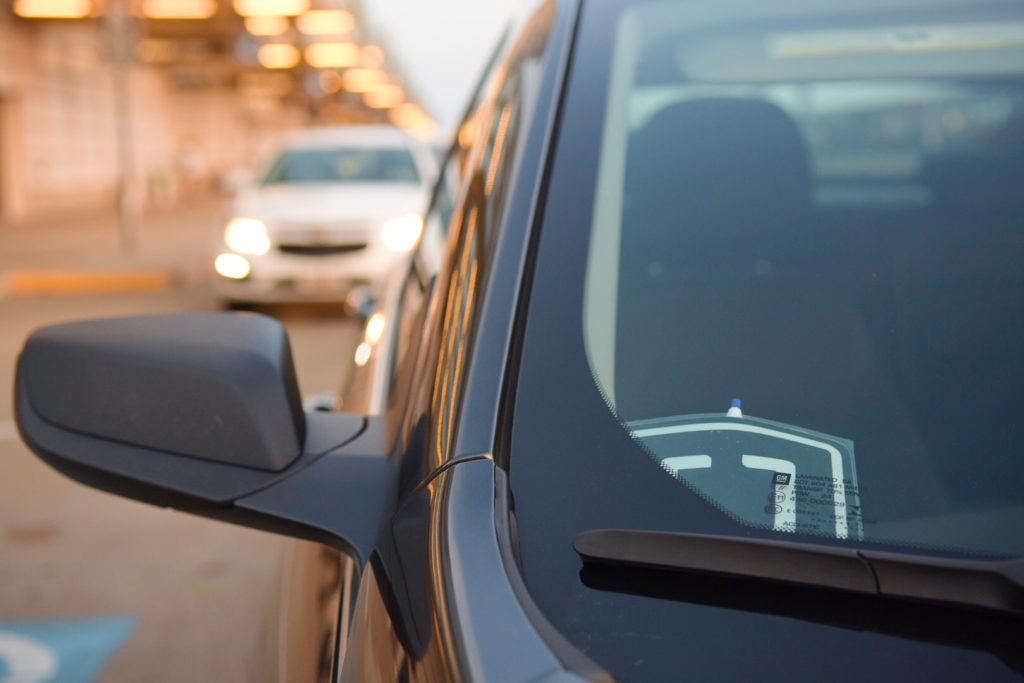District officials partnered with Uber, sexual assault prevention organizations and about 10 bars and clubs to launch a bystander awareness campaign to prevent sexual assault.
The Metropolitan Police Department and the Mayor’s Office of Nightlife and Culture implemented the “The Stand Up, Don’t Stand By” campaign, in partnership with No More and Uber, the D.C. Rape Crisis Center, and the Safe Bar Collective earlier this month. Participating bars and clubs placed posters at their establishments with messages like “check your ride” and “friends look out for each other” to encourage patrons to not be bystanders if someone is at risk of sexual assault, D.C. officials said.
“Our hope is that all people, including students, read the posters and tips from this initiative, educate themselves, raise awareness among their friends and recognize and report any types of sexual assault,” MPD spokeswoman Kristen Metzger said in an email.
D.C., Seattle and Philadelphia joined Las Vegas and Los Angeles in the campaign, which both implemented the program in February.
Metzger said sexual assault can happen anywhere, but the consumption of alcohol increases the likelihood that an assault will occur. At least 50 percent of student sexual assaults involve alcohol, according to alcohol.org.
She said MPD decided to participate in the campaign because “it brings awareness to sexual assault before it starts” and urges bystanders to intervene when they see a situation where sexual assault might occur.
In 2017, students reported 38 incidents of rape and 13 incidents of fondling, doubling the number of reported sexual assaults on campus since 2015.
Incidents of sexual abuse in the Second District decreased from 39 reports in 2017 to 38 reports in 2018.
Shawn Townsend, the director of the Mayor’s Office of Nightlife and Culture, said his office joined Uber and No More, a sexual assault prevention advocacy group, to launch the campaign to encourage employees and customers at bars and clubs to be “proactive” in preventing sexual assault.
“There has been an increase in sexual harassment in the workplace overall, so I thought it was important to highlight it so that we can get folks, both employees and patrons, to start thinking about taking preventative action,” Townsend said.
He said participating bars and clubs that are open to 18-year-olds should pay particular attention to implementing the prevention tips to ensure that staff and students who attend the club are knowledgeable about how to prevent sexual assault.
Tracey Breeden, the head of women’s safety and gender-based violence programs at Uber, said Uber has worked with local government officials, sexual assault prevention advocacy groups and bars and clubs to implement bystander awareness messaging through posters reading “check your ride” and “friends look out for each other.”
She said Uber is also working with local sexual assault prevention organizations to create trainings for bar and club employees on how to handle situations where a sexual assault might occur.
“It’s important for bystanders and friends to stick together and to take care of one another and really get that education out there that you should be sticking together and staying together and helping that person get all the way home,” Breeden said.
She said students should ensure their Uber vehicle’s license plate and model matches the information from the Uber app and not the name given from their driver before getting into a car because the driver could be impersonating an Uber employee. The Uber app tips riders on their phone to check the license plate before their driver arrives.
Breeden added that Uber provides its drivers with information on the Uber app about how to handle certain situations, like when a passenger is overly intoxicated or at risk of sexual assault.
Glendon Hartley – a co-owner of Service Bar, which is a participant in the campaign – said he decided to participate because he wants customers to feel comfortable at his bar.
He said that although putting up posters with bystander tips does not guarantee sexual assault prevention, the messages can help deter potential sexual predators.
“Having a spotlight shown on these types of interactions is only going to help our business and help people feel safe,” Hartley said. “And if people feel safe, they will remember where the place is that they felt safe and comfortable and they’ll come back.”





